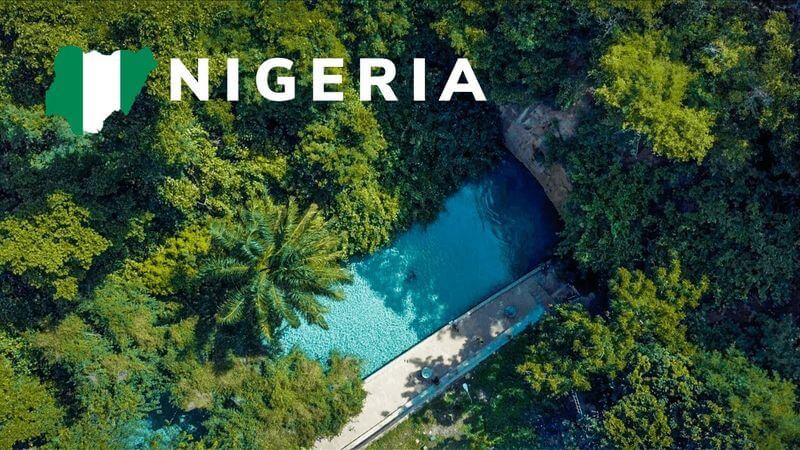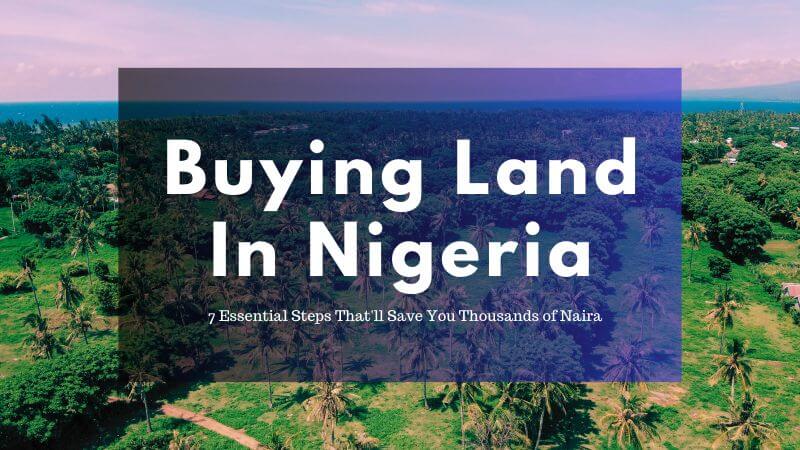Nigeria is a beautiful country with hundreds of interesting and unique cultures, languages, cuisines, and cities. It is easy to become absorbed in the diverse Nigerian life. With so much in the book to know, we’ve compiled a complete guide to living In Nigeria.
These step – by – step guide will highlight a few key elements of a typical Nigerian life, which will help you get a closer glimpse of what it feels like living in Nigeria.
Nigerian Major Languages
Nigeria is one of the most linguistically diverse countries in the world, with over 525 native languages spoken.
However, the official language is English – which is the language of former colonial British Nigeria, but it is spoken less frequently in rural areas and amongst people with lower education levels.
Nigerian English and Nigerian Pidgin are the second languages of around 100 million Nigerian citizens.
There are 3 major native languages that are spoken throughout the country. They are are: Hausa (spoken by over 80 million Nigerians), Yoruba (spoken by over 50 million Nigerians), Igbo (spoken by over 30 million Nigerians).
Other common languages includes: Efik-Ibibio cluster (over 15 million), Fulfulde (13 million), Kanuri (8 million), Tiv (5 million), Nupe (3 million) and approx. 2 to 3 million each of Karai-Karai Kupa, Kakanda, Edo, Igala, Idoma and Izon.
Hausa is spoken mainly in the north of Nigeria, whereas Yoruba is spoken mainly in the west of Nigeria, and Igbo is spoken mainly by the Eastern part of Nigeria.
As a visitor you will be able to get by speaking English but you may also benefit from learning some words or phrases in Hausa, Yoruba or Igbo depending on the cities and areas of the country you are visiting.
Nigerian Food
Nigerian cuisine consists of a variety of dishes, foods and ingredients from the many ethnic groups throughout Nigeria. If you have ever been to a Nigerian restaurant or eaten at your Nigerian friend’s house, you will probably have had Jollof Rice or Iyan (Pounded yam).
Most Nigerian dishes are packed full of flavour and spices. While Jollof Rice is eaten all over Nigeria there are other dishes like Suya that you are more likely to find on the plates of the Hausa people of Northern Nigeria.
Other popular Nigerian dishes and food items include Egusi Soup, Garri, Akara, Moi Moi, Pepper Soup, Ewa Agoyi (cooked mashed beans with a pepper sauce) and Kilishi, a delicacy similar to beef jerky.
Nigerian Holidays
Nigerians love to celebrate and tradition is an important part of everyday life for people of all ages. As a result there are several public holidays celebrated across the country. There are public holidays linked to religion such as Christmas Day, Boxing Day, Eid al-Fitr, Eid al-Adha, Good Friday, Mawlid, and Easter Monday.
There are also public holidays linked to national pride such as National Day, which commemorates Nigerian Independence on 1st of October, and Democracy Day, on 12th of June.
On the 1st of May Nigerians celebrate Workers’ Day and on the 27th of May they celebrate Children’s Day. All the holidays are celebrated in unique ways and for many of the larger national holidays families will gather, traditional Nigerian dishes will be served and dancing will ensue.
Where to live in Nigeria
If you are thinking of living in Nigeria there is a lot to consider. Are you looking for peace and tranquility? Or do you want to be based in a bustling metropolis? You can have it all in Nigeria.
If you want to live in a city that is safe, has lots of job opportunities and a thriving cultural scene you want to live in Lagos or Calabar or Abuja. On the other hand if you are looking for a quieter life, where you will still have access to all the conveniences of a city, then you may prefer Osun, Ibadan or Ilorin.
Your decision will depend on your personal and professional circumstances so it is important you do some research before making a move. The large economic centres like Lago, Kano or Onitsha are great for young business people whereas Enugu or Kwara may be more your speed if you are looking to relax.
Working in Nigeria
There are a wide variety of thriving industries throughout Nigeria that offer plenty of job opportunities for all kinds of people.
In 2021, a person working in Nigeria typically earns approximately 339,000 NGN per month which is equivalent to 616 GBP. To put this in perspective, the average cost of living in Nigeria for a single person per month is around 218,250 NGN which is 56% less expensive than the cost of living in London.
It is easier than ever to be financially secure in Nigeria and the banking sector in Nigeria is also growing to accommodate more and more people every year.
Nigeria, being one of the largest economies in Africa, is welcoming to skilled workers from overseas. In 2021, the Nigerian tech and communication sector is booming and looks set for expansion throughout the decade.
With healthy banking, agricultural, construction, consumer goods and entertainment industries, working in Nigeria has never been easier or more rewarding, especially if you are a skilled worker based in one of Nigeria’s large cities like Lagos, Ibadan, Kano, Benin City or Port Harcourt.
Nigerian Currency
The currency of Nigeria is the Naira. The naira that is currently used was introduced in the 1970s and is one of Africa’s strongest and most stable currencies. The currency is controlled by the Central Bank of Nigeria and is printed and minted by the Nigerian Security Printing and Minting Company Limited.
The Naira is recognized by the sign: ₦, and by the international currency code NGN. The name for the Nigerian currency, “naira” was coined by Chief Obamfemi Awolowo who was Nigeria’s Federal Commissioner for Finance from 1967 to 1971.
Getting a Nigerian Visa
The Visa application process will depend on the country from which you are applying. Similarly, the process will depend on whether you are applying for a tourist/visitor visa, a business visa or a temporary work permit.
To learn more visit the official website of the Nigeria Immigration Service for detailed visa application guidelines.
Included on their site is a list of Embassy visa fees for every country, for example for a single entry visa from Denmark you would need to pay $88 whereas for a single entry visa from the UK you would need to pay the equivalent of $144.
During the pandemic the travelling and entry process in Nigeria has been disrupted. Currently, the UK government recommends that you get a valid visa before travelling although some business travellers may be eligible to apply for a visa on arrival.
Generally, the visa process is not difficult or especially lengthy because Nigeria is one of the largest trading, industry and tourist hubs within Africa. If you have a Nigerian residence permit (CERPAC or Green Card) you don’t need a visa.
Sending Money to Nigeria
Now you know more about Nigeria you may be ready to start sending money to family and friends based in the country.
There are several international money transfer service companies, approved by the CBN – that can help millions of people all around the world send and receive money across borders.
To help you make a quicker decision, here are some of the most popular:
- Wise (formerly transferwise)
- Small World fs
- World Remit
- Western Union Money Transfer
- Money Gram
- Ria Money Transfer
- Boss Resolution
Summary: A Complete Guide to Living In Nigeria
This is in no way a comprehensive guide to living in Nigeria, but it will surely get you started on the basic knowledge about moving to or living in this great country.
This article is updated regularly, to keep up to date with the latest information about Nigeria, so feel free to check back to this page for an updated version.


![Lagos traffic: A Guide on How to Survive & Deal With it [2025 Update] 3 Lagos traffic](https://www.livinginnigeria.com/wp-content/uploads/2022/02/Lagos-traffic-How-to-survive-and-deal-with-it.jpg)
